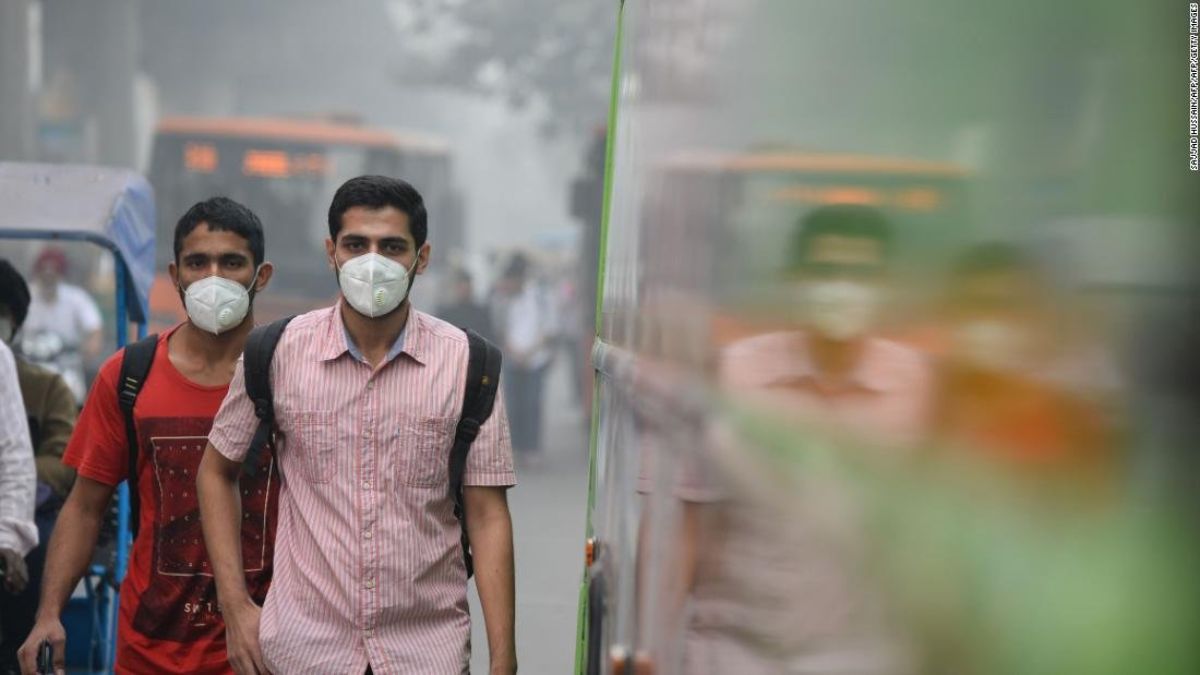Highlights:
- Air Pollution is the “greatest” risk to human health
- On average, it cuts almost 2 years from the lives of men, women and kids all over the globe
The air pollution, on average, reduced the life expectancy of every man, woman and child on the planet by almost 2 years as per the data released on Tuesday where experts said that the poor air quality is the “greatest risk to human health”.
According to the Air Quality Life Index (AQLI), as the world is racing towards finding a vaccine for the novel Coronavirus pandemic, the air pollution would continue to affect billions of people all around the globe by giving them a shorter and sicker life.
The index converts particulate air pollution – which majorly comes from the burning of fossil fuels – into its impact on human health.
The Index found that even though there has been a huge reduction in particulate matter from China – one of the most polluted countries in the world – the overall air pollution level had stayed more or less same over the past 2 decades.
Countries such as India and Bangladesh, the problem of air pollution is so severe that it now cuts average lifespan of almost 10 years in some areas.
The authors of the research said that the air quality which many humans breathe consutitued much higher health risk than the Coronavirus.
Michael Greenstone, Creator of AQLI said, “Though the threat of coronavirus is grave and deserves every bit of the attention it is getting, embracing the seriousness of air pollution with a similar vigour would allow billions of people to lead longer and healthier lives,”.
Also Read: Case Filed Against Rhea Chakraborty By Sushant Singh Rajput’s Father
Almost 25% of the world’s population lives in 4 South Asian countries which are amongst the most populated in the World. The 4 countries are
- China
- India
- Bangladesh
- Pakistan
The AQLI found that these populations could see their lifespan cut by 5 years on average after they have been exposed to pollution levels which are 44% than 20 years ago.
It said that the particulate pollution is also a “signifiant concern” across the countries in SouthEast Asia where the forest and crop fires, combining with the traffic and power plants create toxic air.
It says that around 89% of the region’s 650 million or 65 crore people living in the area where the air pollution level exceeds the World Health Organisation’s recommended guidelines.
The AQLI report said, “While places such as the United States, Europe and Japan have succeeded in improving air quality, pollution still takes an average of two years off life expectancy worldwide,”.
The report claimed that Bangladesh has the worst Air Quality of any country, and close to 250 million or 25 crore residents of India’s Northers states could lose 8 years of life on average unless the air pollution is brought under control using drastic measures.
There have been numerous studies which show that exposure to air pollution is also a key COVID-19 risk factor and the author has urged the governments to prioritise air quality after the pandemic.
Greenstone, from the Energy Policy Institute at the University of Chicago, said, “No shot in the arm will alleviate air pollution,”. He added that “The solution lies in robust public policy,”.


